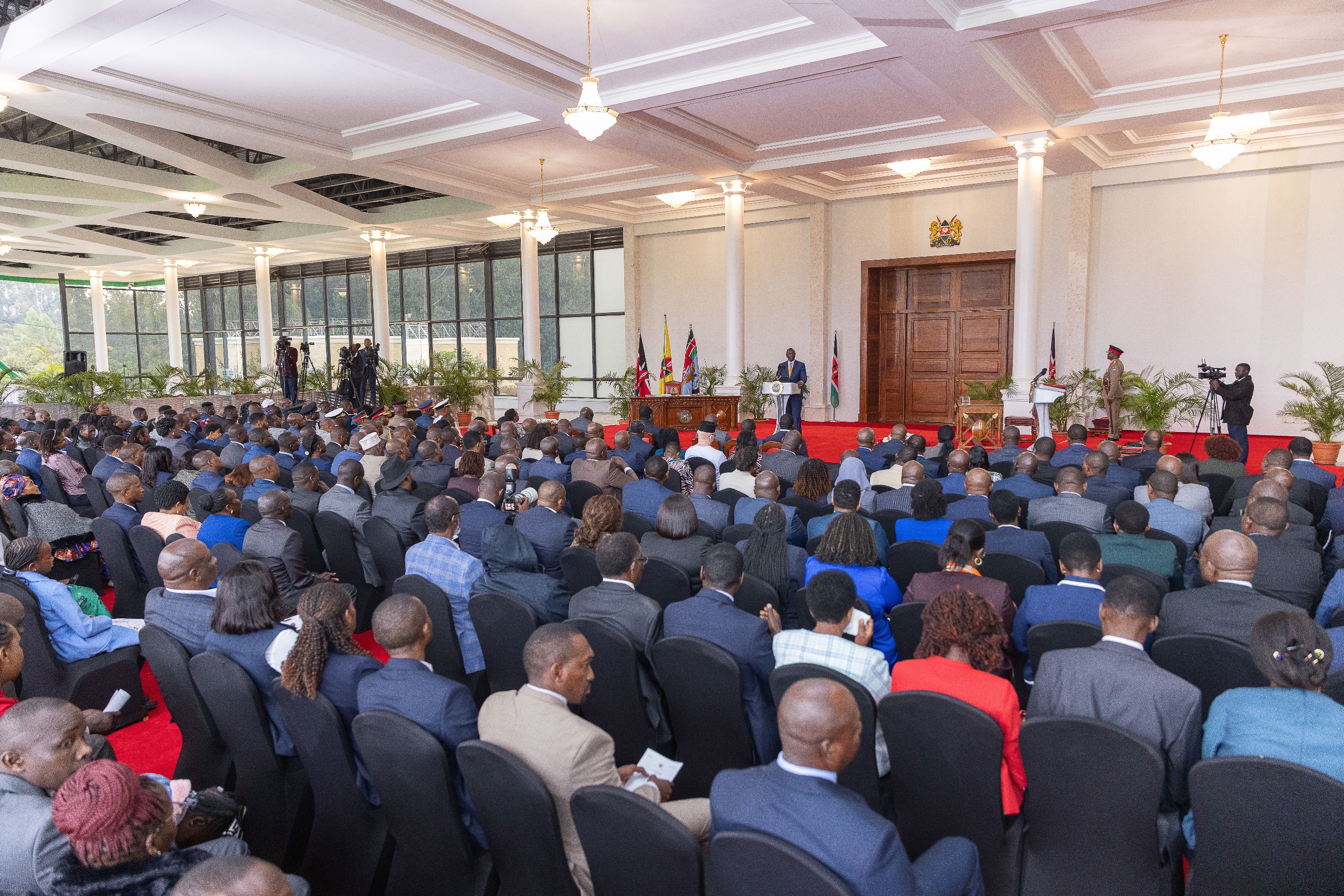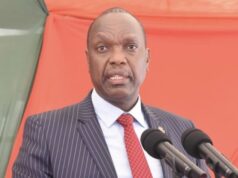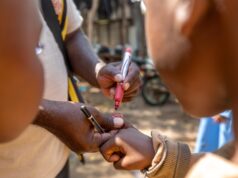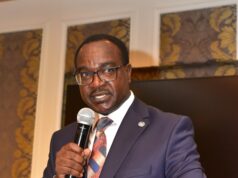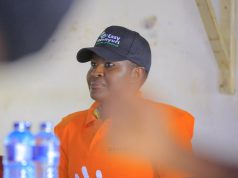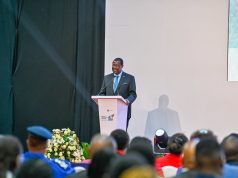Members of the new Cabinet President William Ruto appointed at the height of Gen Z protests assumed office Thursday after they were sworn in at State House.
The team of 19 swore to “at all times be faithful to the Republic of Kenya, obey, respect and uphold the constitution and all other laws”.
They also swore to “truly serve the people of Kenya in the office of Cabinet secretary…with honour and dignity, for the good management of the public affairs of the republic.”
Having taken the oath of office, the tough assignment begins, especially for the four CSs seconded from Raila Odinga’s opposition side.
President Ruto invited into his government John Mbadi to serve as Treasury CS, Opiyo Wandayi (Energy), Wycliffe Oparanya (Cooperatives) and Hassan Joho (Mining).
A difficult assignment of turning around the country’s economy heavily battered by debt and a cash flow crisis, awaits Mbadi at the National Treasury.
Eyes are on how the CS, who previously criticised the government’s tax and debt policies, will navigate the new task to address the economic woes faced by Kenyans.
He is taking over at a time the government has sustained a Sh500 billion revenue hole following the collapse of two tax laws, which Ruto’s team banked on to deliver the Kenya Kwanza legacy.
Mbadi has to implement the 2024-25 budget, which had to be slashed to accommodate the tax revenue shortfalls.
This is happening against the backdrop of inflation, heavy debt repayments (some due in the medium term) and sporadic protests against further taxation.
The immediate former ODM chairman is the man Kenya Kwanza is banking on to salvage Kenya from the financial woes, which continue to take a new form every successive financial year.
Credit rating agencies have given a damning score of the country’s debt-carrying capacity.
Wandayi would also have to navigate concerns about high prices of electricity and frequent supply disruptions caused by an ageing infrastructure, inefficiencies and corruption.
Oil imports also remain a major issue in the ministry in the wake of the audit queries around the government-to-government contracting agreements, which have not handed motorists any relief at the pump.
Oparanya will be the man in charge of the Hustler Fund, which has been wrought by many audit queries.
For the President, however, all the 19 CSs who took office on Thursday have their work cut out, which is to ensure a “government that delivers security and prosperity inclusively and sustainably”.
“We have opened a new chapter of the country’s development…this mission that cannot and must not fail,” he said.
Ruto tasked the team to take the lead in the fight against corruption and to communicate the government agenda effectively.
He urged the team to take note of Kenyans demands “who have made their expectations known in bold terms and showed their intolerance to corruption and ineptitude clearly”.
“You will be team players, servant leaders, faithful trustees, effective stewards of people’s interests and dependable custodians of their resources. Go forth and from this day, focus on delivery and dedicate your time and effort to the implementation of what the nation demands,” the President said.
“Never let your own interest come in the way of your duties. You have my full support but that support would end if it is in conflict with my responsibility to be accountable to the people of Kenya.”
On graft, he drew new tough rules for the team indicating that accounting officers who occasion losses of public funds would be surcharged.
Ruto said his administration, in support of the new team, would also address the issue of ghost worker payroll fraud.
As a result, all persons working in government, including constitutional offices, would be issued with unique personal identifiers.
To bolster the graft fight, the President said his team would come up with a “legal and constitutional framework on continuous vetting of all public officers”.
He announced that a central repository would be created for wealth declaration across the entire of government – under one office.
“We shall expedite prosecution. We seek to change the Evidence Act and CPC Code to provide that cases are resolved in six months,” Ruto said, adding the government would enhance incentives for whistleblowers.
He blamed poor communication of agenda and insufficient public engagement that leaves citizens unable to connect with programmes as the bane of his administration.
The President also raised concerns that many public officials have fallen short of the constitutional standard for the offices they hold, instructing the new lot to conduct themselves as servants of the people.
“We shall proceed to take unprecedented steps to accelerate the delivery of services with efficiency integrity, transparency and inclusivity,” Ruto said.
He exuded confidence the new broad-based government would unlock the potential of the country, decrying how divisive politics has hampered the country’s growth.
“It is why I bring on board deserving Kenyans belonging to a different political formation to form an alliance of rivals. Our ability to talk things out has enabled Kenya to pull back from the brink of the precipice,” the President said.
The new Cabinet has been tasked to accelerate the attainment of the Kenya Kwanza agenda, entrench accountability and fight corruption.
“I have engaged leadership of Parliament to expedite Conflict of Interest Bill in due course. We are determined to make full use of existing laws to consult and collaborate with national justice law and order institutions to speed up active cases.”
The new Cabinet was also tasked to implement a new budget management system known as zero-based budgets.
He promised technological improvements to rid government business of graft and conflict of interest, as well as improve VAT refunds to boost liquidity.
President Ruto further tasked the Cabinet to work with MPs to promote local manufacturing and value addition and restrict unnecessary imports.

